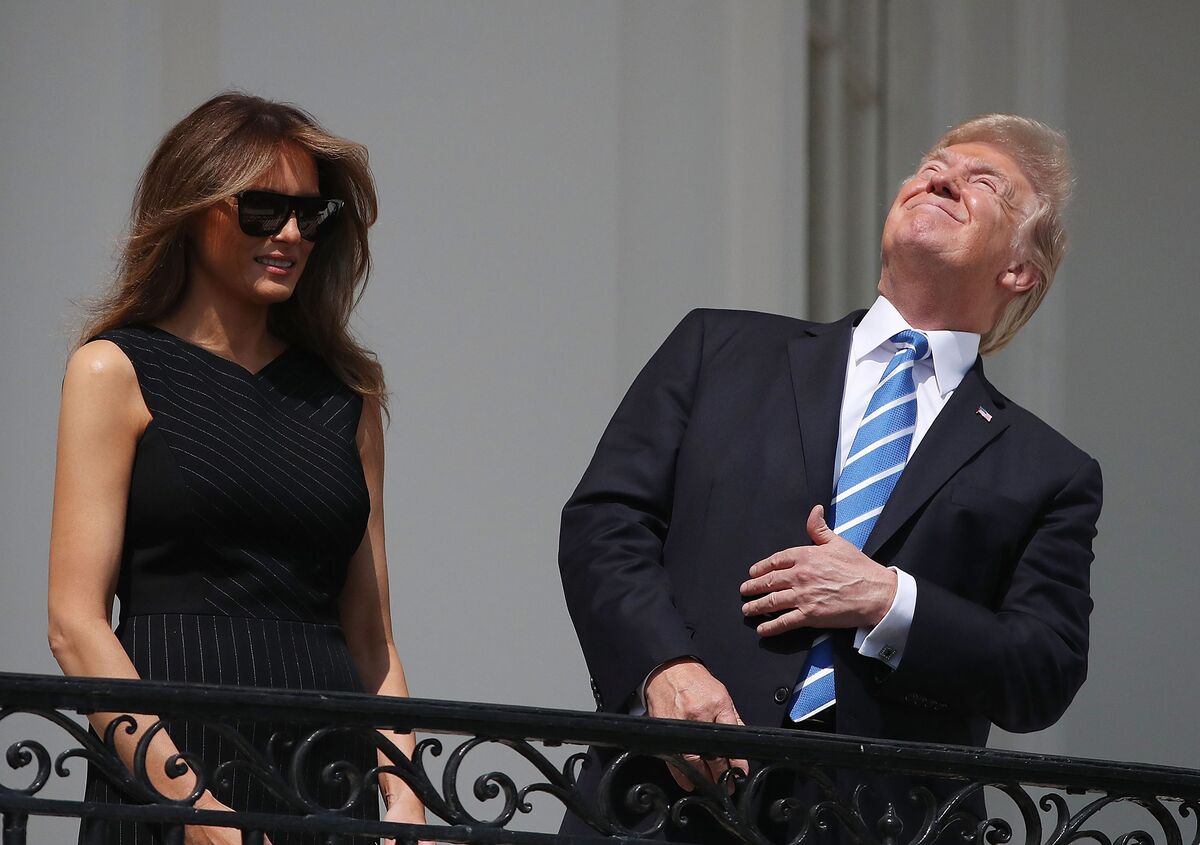
Donald Trump the presidential candidate denounced the Federal Reserve’s promotion of low interest rates as feeding a risky economic bubble. Now in the White House, regularly celebrating the stock market’s advances, he’s had a change of heart.
“I do like a low-interest-rate policy, I must be honest with you,” Trump told the Wall Street Journal in April, less than three months after taking office.
In keeping with that view, he chose current Federal Reserve Governor Jerome Powell to replace Janet Yellen as chairman of the central bank, according to three people familiar with the matter -- a selection that signals to investors that Trump supports continuity at the Fed and in markets.
Powell, a Republican who was appointed to the Fed in 2012 by Democratic President Barack Obama, has a reputation as a pragmatic policy maker and has generally backed current Fed Chair Janet Yellen’s cautious approach to withdrawing financial stimulus and raising rates.
Trump’s turnabout on the issue was so complete that he even seemed to seriously consider keeping Yellen in the post. Trump once attacked her leadership of the Fed, saying on the campaign trail that it had created a “big, fat, juicy bubble." But he told Fox Business Network last month that she was “very impressive,” and hinted he might yet reappoint her.
Yellen Ally
He did the next best thing, choosing a candidate who’s never dissented from Yellen on matters of monetary policy in the hope of keeping her economy going even without Yellen herself.
Gadfly: Wall Street salivates over one of its own
The Yellen Fed has gradually raised rates against a backdrop of declining unemployment and still-low inflation. Borrowing costs remain near historic lows and Yellen has maintained a cautious approach to tightening monetary policy, as she seeks to avoid undermining the economic expansion.
Before winning the White House, Trump had publicly complained for years that the Fed was too loose with the U. Trump was a critic of Fed policy under Yellen’s predecessor at the Fed, Ben Bernanke, protesting his moves to keep interest rates low and prop up the economy after the financial crisis just before Obama took office.
“The Fed’s reckless monetary policies will cause problems in the years to come,” Trump tweeted in 2011. “The Fed has to be reined in or we will soon be Greece,” referring to the European nation’s debt crisis that forced bailouts by euro-zone countries and the International Monetary Fund.
Trump persisted with his criticism, tweeting in 2012: “The Audacity of @BarackObama -- the Federal Reserve purchased 61% of all debt issued by Treasury in 2011. Killing our children’s future.”
Gadfly: Jerome Powell’s wealth and Trump’s ideal
In an interview on CNBC in July of 2012, Trump said Bernanke should not move ahead with another round of quantitative easing.
“All of this artificial stimulus, I mean it’s proven it’s done nothing,” Trump said. “And we have to get back on track. We have to get back on track by paying down debt. We’re not going to be doing it if Bernanke goes wild.”
Inaccurate Predictions
Trump inaccurately predicted that the Fed’s moves would eventually lead to inflation and job losses while ballooning the national debt. His regard for low interest rates may have improved after the expected inflation didn’t materialize and the economy continued to progress, said Jeffrey Bergstrand, a professor of finance at the University of Notre Dame’s Mendoza College of Business.
“There were a lot of naysayers, saying this was unprecedented; a lot of people saying this would cause hyper-inflation,” Bergstrand said. “But we know historically it worked.”
Trump’s public criticism of the Fed largely ceased after 2013, until he started his campaign for president two years later.
“We have a Fed that’s doing political things,” he said in his first debate with Hillary Clinton in September 2016. “And believe me: The day Obama goes off, and he leaves, and goes out to the golf course for the rest of his life to play golf, when they raise interest rates, you’re going to see some very bad things happen, because the Fed is not doing their job.”
Now that he’s president, Trump is at the helm of an economy that is near full employment with a stock market reaching record highs. He has shown no inclination that he wants a rapid hike in interest rates.
Bank Regulations
The president may be seeking a more significant shift, however, when it comes to regulations on the financial industry. The White House team leading the search for the next generation of Fed leaders has sought candidates willing to roll back financial regulations, according to officials familiar with the process. Powell, a former managing director at private equity firm Carlyle Group LP, is sympathetic to calls to ease rules.
Recent presidents have chosen in their first term to maintain continuity at the Fed by reappointing the sitting Fed chairman. The last president who changed the Fed leadership in his first term was Jimmy Carter, who replaced Fed chair Arthur Burns with G. William Miller in 1978 and then Paul Volcker in 1979.
While Trump praised Yellen publicly in recent months, behind the scenes Republican conservatives sought to block her from being reappointed. House Republicans have been among the biggest critics of the central bank since the financial crisis, passing several pieces of legislation aimed at constraining it.
— With assistance by Jennifer Jacobs, Craig Torres, and Kevin Cirilli.


0 comments:
Post a Comment